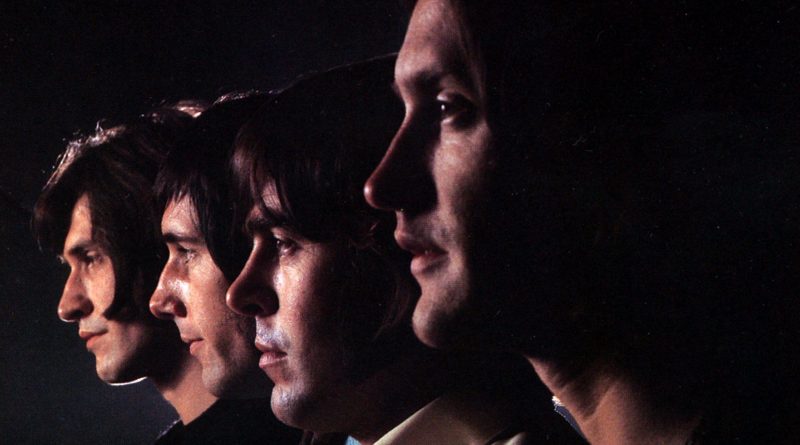50TH ANNIVERSARY TBT ALBUM REVIEW: Arthur by the Kinks
Follow WHIP Twitter Facebook Instagram
WRITTEN BY: Dan Fare
The Kinks live in a strange bubble of 1960’s rock music. They weren’t quite popular enough to cement themselves as an unquestioned “classic” band that their contemporaries like The Beatles, The Who, or The Rolling Stones can claim. Their US audience was diminished by a nationwide concert ban by the American Federation of Musicians during the “British Invasion” of the 1960’s, and their overly theatrical and critically panned output in the late 70’s and 80’s turned away many, so only die-hard fans remained faithful followers.

Yet, doesn’t everyone know at least one Kinks track? Maybe it’s the vaguely androgynous “Lola?” Or the proto-punk garage band-inspiring “You Really Got Me,” popularized by Van Halen’s 1978 blazing cover? Or perhaps Wes Anderson’s inclusion of “This Time Tomorrow,” “Powerman,” and “Strangers” in The Darjeeling Limited introduced modern audiences to their quirky sound? However listeners have come to know The Kinks, their strange blend of raw psychedelia and offbeat British humour have carved out a cult following for themselves.
Led by brothers Ray and Dave Davies, the Kinks’ initial records were primarily abrasive garage rock. Ray took to blues-inspired songwriting and rhythm guitar while Dave played blistering lead. As with most bands in the 60’s, their output became more psychedelic and outlandish. The band experimented with harpsichords and sitars in 1967’s Something Else, and Ray took to more socially conscious lyrics about British society in 1968’s The Kinks Are the Village Green Preservation Society.
Arthur (or the Decline and Fall of the British Empire) (which will be referred to as Arthur for the rest of this review) is from this era of the Kinks’ peak creativity and critical achievement. The project was initially conceived as a collection of songs for a television play in early 1969. The program was nearly completed but was cancelled at the last minute due to financial reasons. The Kinks’ intended accompanying album, Arthur, survived, and was released 10 October, 1969. The album is 12 tracks of rock opera psychedelia paired up with Ray Davies’ theatrical, sardonic, socially critical, and conceptual songwriting.
Side A blasts open with the powerful “Victoria,” establishing topics the album tackles including class disparity, warfare, and widespread poverty in Britain. It sets the stage for the album’s loose story in Victorian England but indicates these problems have continued into today. “Yes Sir, No Sir” and “Some Mother’s Son” critique war; the former critiques how soldiers are treated like mindless slaves and the latter laments the familial impact of war. We hear the superficiality of those in society who choose to reject these issues for material activities in “Drivin’.” “Brainwashed,” a personal favorite track, addresses the subtle ways aristocrats oppress their lower-class subordinates: they may think they have the rights promised to them, but truly the high classes steamroll them for their benefit. The side closes with the epic “Australia,” where Arthur moves to the titular continent to escape from Britain’s class inequality, war, and drugs, in search of utopia. It concludes with a four-minute extended jam, accented by a horn section and Dave Davies’ bluesy guitar work.
Side B continues this idea of finding utopia with “Shangri-La,” named after a similar concept in James Hilton’s 1933 novel Lost Horizon. Here, Arthur finds his utopia in the middle-class suburbs of Australia: a fancy car, a bathroom in his own house, and a TV and radio paid on credit. A cognitive dissonance is introduced: middle-class culture and gossip causes insecurity in Arthur, but he’s too scared to say anything or move back to Britain, so he stays in his place. While Arthur deals with this anxiety, “Mr. Churchill Says” explains life back in Britain, now in World War II. Not much has changed: the lower-class soldiers are still being brainwashed into fighting for the higher class. “She’s Bought a Hat like Princess Marina,” an almost vaudevillian track, explores how lower and middle classes break free from their sad lives through fashion and pretending to be like their high-class idols.
The closing three tracks “Young and Innocent Days,” “Nothing to Say,” and “Arthur” form a depressing reflective trilogy of current day: we return to Arthur in Australia, where he wishes he had the naive worldview he had when he was younger. His son, however, formed in the society Arthur did nothing to solve, rebukes his father, who he believes has nothing to offer in his final years other than banal conversation. The album ends with a cynical look towards the future, how there’s no real use dwelling on the past or present. The future will pass you by: you can either escape like Arthur and pity yourself, or you can take action and try to clean up society.
The actual music found here is full of catchy hooks with tinges of psychedelia and hard rock without attaching itself to a single genre. “Australia” feels jam band-like, but the harpsichord in “She’s Bought a Hat…” gives it an antique feel, but you cannot deny the harder rock drive in “Victoria” or “Brainwashed.” It’s difficult to even apply just one genre to individual songs, as most of the tracks diverge from their initial sound to a completely different second (or third) part. This blend of genres within each song leaves an album that never slows down for long.
From a concept album standpoint, the “story” here is loose; Arthur is really only mentioned by name in a few songs. The back cover of the release gives Arthur a whole family backstory that was probably developed more in the trashed film. Concept albums typically feel forced onto the listener or their stories are too abstract, but Arthur gives just enough story that feels conceptually consistent and smart, but also leaves room for interpretation.
Modern audiences might find the lyrics a little too pessimistic and the critique of British society is a subject that isn’t really explored in music today, so the lyricism is difficult to relate to. However, the wild and raw Kinks sound on ‘Arthur’ still sounds exciting today. Fans of recent acts like Foxygen or The Kooks or slightly older bands like Wilco and Yo La Tengo should make sure to check this out.
Arthur can be found on Spotify in original mono and stereo mixes with bonus tracks, live editions, and alternate mixes. For super fans, a 50th anniversary edition box set of the album will be released on October 25th and can be pre-ordered online.
FURTHER LISTENING:
The Kinks Are the Village Green Preservation Society by The Kinks, the album preceding Arthur that displays more psychedelic and conceptual pieces
Tommy by The Who, another rock opera from 1969 with classics like “Pinball Wizard,” “I’m Free,” and “See Me, Feel Me”
Fun House by The Stooges, for those pining for more of the Kinks’ earlier proto-punk sound and want a rawer dirtier album




